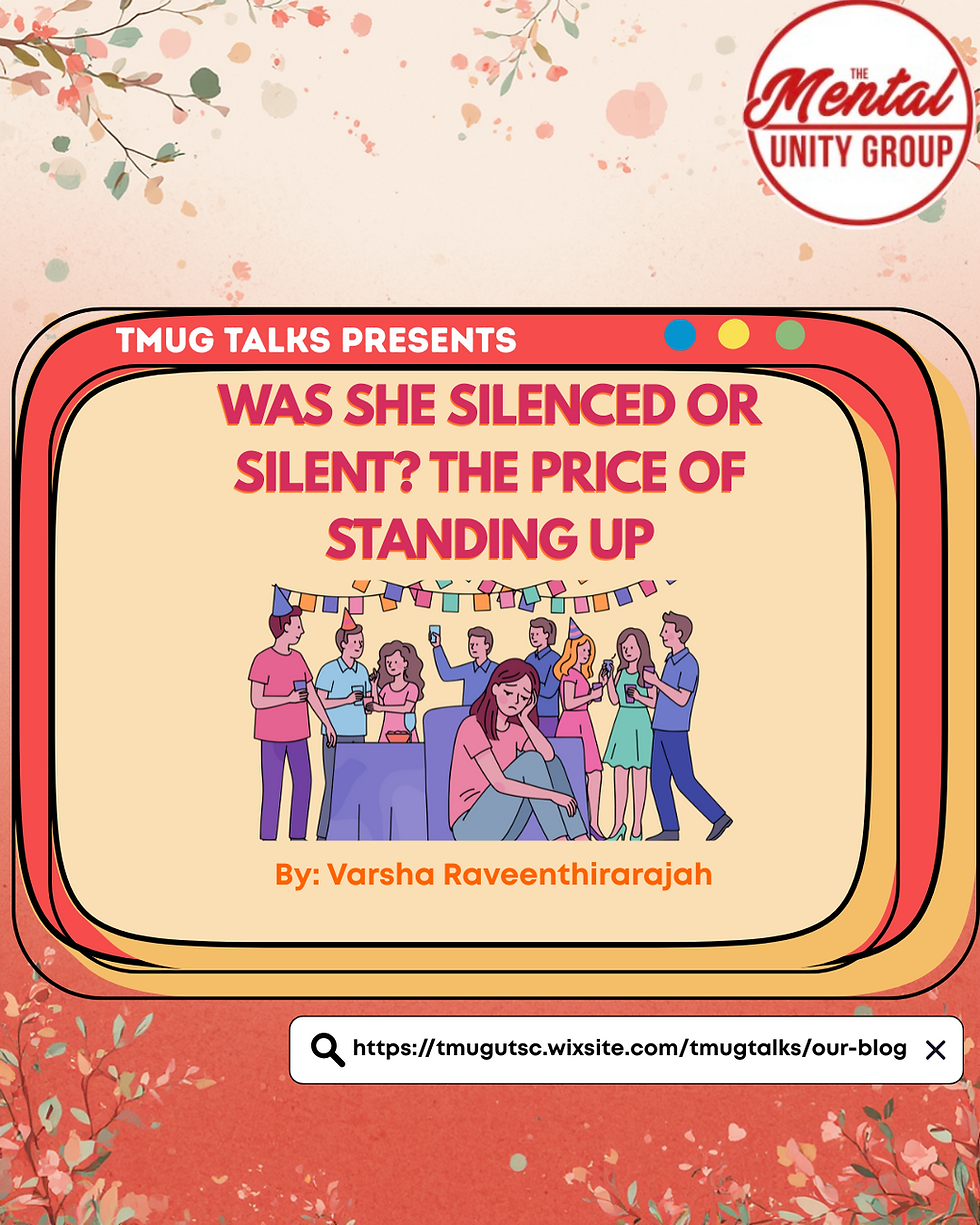Stereotypes in STEM: Exploring Gender Bias in Career Narratives
- Faria Islam
- Dec 11, 2023
- 3 min read
What makes Canada's community spirit unique to you? For many, it's the vibrant inclusivity that brings diverse people together, creating a place for innovation and excellence in a shared space. Yet, within the spectrum of Canadian work environments, only a few voices in wide-ranging job fields are heard. In professional domains, the principles of equity, which are valued by and embedded in society, are overlooked. It's rather disheartening, isn't it? Unfortunately, in various career fields across Canada, this scenario is our reality. This realization struck me deeply when I attended a STEM competition and observed a prominent disparity in gender representation. There were remarkably more males participating compared to females. It was the moment I realized that despite progress in many areas, achieving gender equity in STEM fields remained a significant challenge.
The journey of a career spans a lifetime, and it's crucial to recognize the impact of stereotypes on this path. This influence is notably prominent in schools and workplaces, especially in the early stages. Looking at schools and jobs, there's a concerning trend of how many girls and boys choose different paths. For instance, in high school, girls are almost 30% less likely than boys to pick science and tech programs (Government of Canada, 2021). By extension, according to the Nursing Statistics - Canadian Nurses Association, most nurses are women (about 91%), but 56% of doctors are men (A Profile of Physicians in Canada, 2020 | CIHI, n.d.). These statistics highlight that jobs that are perceived to require a greater degree of competence and decisiveness often pay better and these roles are predominantly occupied by men, leading to the assumption that they are better suited for such positions. Consequently, this pushes women to occupy traditional caring roles on the opposite side of the spectrum, which are also regrettably with lower pay (Teresa-Morales et al., 2022). Throughout history, women have often been underrepresented in STEM fields. This lack of representation has led to a wide range of issues, ranging from not having a variety of perspectives in research and innovation to a shortage of diverse role models and missed opportunities for groundbreaking discoveries.
However, it's not the case that women are devoid of access to the tools and opportunities essential for thriving in STEM, especially in today's world where equality is highly valued. Despite having the access, women still encounter hidden barriers, stemming from historical inequities and perpetuated by ongoing unfairness, significantly affecting representation in professional fields. The already existing gender imbalance in STEM makes women feel like outsiders (Drake, 2015). As a result, women in STEM often doubt whether they belong, triggering constant low-level stress responses in those who feel out of place, leading to serious health problems like anxiety and depression (Drake, 2015). This reinforces the urgent need for action, support, and meaningful societal change in order to empower underrepresented individuals in STEM and take manageable steps toward equity. As Nichelle Nichols, a former NASA ambassador says, “Science is not a boy's game, it's not a girl's game. It's everyone's game. It's about where we are and where we're going."
Equity in Action: One notable initiative that must be taken to proactively address equity in STEM and empower the underrepresented individual is to create targeted women-focused programs. The purpose of these programs would be to provide essential resources and support to help women break into the field, fostering their ability to get more opportunities in STEM. This approach acknowledges the need for a focused effort to overcome systemic obstacles faced by marginalized groups, however, one may wonder: Why not pursue inclusivity that encompasses everyone, including men and non-racialized communities? Think of it like giving extra water to someone with enough, while others get the same, despite having none before. Just as it's unfair to favor those with enough water, it's right to provide extra opportunities and support in STEM for those without existing advantages. Hence, it's crucial to recognize that individuals from marginalized or underrepresented groups may require extra resources, mentorship, or targeted programs to overcome systemic obstacles and excel in fields like STEM. By doing so, we can pave the way for a more equitable and innovative future that benefits everyone. It's a substantial task, but with consistent effort and determination, it can bring a positive change. As the saying goes, "The journey of a thousand miles begins with a single step."
Sources:
A profile of physicians in Canada, 2020 | CIHI. (n.d.). Www.cihi.ca. Retrieved November 13, 2023, from https://www.cihi.ca/en/a-profile-of-physicians-in-canada-2020
Canadian Nurses Association. (2019). Nursing Statistics - Canadian Nurses Association. Www.cna-Aiic.ca.https://www.cna-aiic.ca/en/nursing/regulated-nursing-in-canada/nursing-statistics
Drake, J. (2015, October 5). What fewer women in STEM means for their mental health. The Conversation. https://theconversation.com/what-fewer-women-in-stem-means-for-their-mental-health-4746
Government of Canada, S. C. (2021, November 24). Gender differences in STEM enrolment and graduation: What are the roles of academic performance and preparation? Www150.Statcan.gc.ca.https://www150.statcan.gc.ca/n1/pub/36-28-0001/2021011/article/00004-eng.htm
Teresa-Morales, C., Rodríguez-Pérez, M., Araujo-Hernández, M., & Feria-Ramírez, C. (2022). Current Stereotypes Associated with Nursing and Nursing Professionals: An Integrative Review. ProQuest, 19(13), 7640. https://doi.org/10.3390/ijerph19137640





Comments